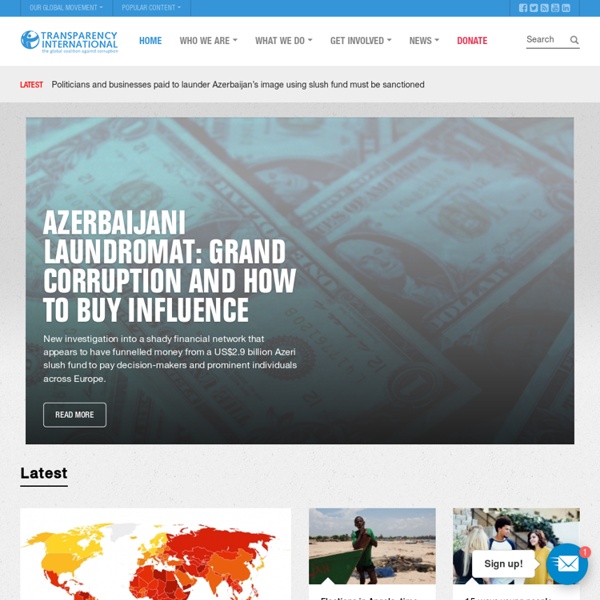



Où va l’argent de mes impôts ? Ce qui est bien avec les impôts directs et indirects que je paie, c’est que c’est moi qui choisis à quel poste du budget de la France je les alloue. Je finance par exemple la Fédération Française des Sports de Glace. Je paie aussi le salaire de ma mère, professeur des écoles ainsi que celui des infirmières de l’Hôpital Saint-Antoine. Et le trottoir de Saint-Nom la Bretèche. Certains autres en revanche, sûrement les plus égalitaires, imaginent que leur impôt est réparti proportionnellement sur chaque poste. Le gagnant a été connu aujourd’hui. La première est sûrement hors concours, mais elle a été développée par la Maison-Blanche. Pour faire plaisir à Nicolas Miguet, qu’il puissent savoir à chaque seconde pour qui il travaille, il existe l’Horloge. On peut donc savoir à quel moment on travaille VRAIMENT pour nous-même. Une autre application découpe 1$ de taxes, de manière visuelle, chaque poste étant identifié par sa surface correspondante.
Council on Foreign Relations RadarVirtuel.com Ca marche au Texas Par Susan Combs, Contrôleur général de l’État du Texas. Les dépenses publiques sont souvent perçues comme impénétrables, opaques au possible. Mais les contribuables ont le droit de savoir quel usage est fait de leur argent, les autorités publiques doivent donc leur rendre des comptes. (Illustration René Le Honzec) Le site Internet « Où va l’argent » lancé par l’État donne accès aux détails des transactions de toutes les agences publiques et des établissements d’enseignement supérieur. Voir où va l’argent Le bureau du Contrôleur du Texas lança le site « Où va l’argent » en juin 2007, offrant une vue sur les larges catégories de dépenses pour toutes les institutions et agences de l’État, telles qu’elles lui étaient reportées par celles-ci. Au-delà du bénéfice d’offrir au public l’accès aux données des dépenses, le bureau du Contrôleur découvrit un bénéfice interne à la priorité donnée à la transparence : rendre les opérations des agences plus claires pour les contrôleurs eux-mêmes.
Digital Civil Rights in Europe OpenNet Initiative The OpenNet Initiative is a collaborative partnership of three institutions: the Citizen Lab at the Munk School of Global Affairs, University of Toronto; the Berkman Center for Internet & Society at Harvard University; and the SecDev Group (Ottawa). Our aim is to investigate, expose and analyze Internet filtering and surveillance practices in a credible and non-partisan fashion. We intend to uncover the potential pitfalls and unintended consequences of these practices, and thus help to inform better public policy and advocacy work in this area. To achieve these aims, the ONI employs a unique multi-disciplinary approach that includes: ONI Principal Investigators Ronald J. John Palfrey Faculty Co-Director, Berkman Center for Internet & Society, Harvard University Rafal Rohozinski CEO and Principal of the SecDev Group and Psiphon, Inc. Jonathan Zittrain Professor, Harvard Law School Co-Founder, Berkman Center for Internet & Society
STATEWATCH Transparency Report NosDéputés.fr : Observatoire citoyen de l'activité parlementaire Lumière sur les biens mal acquis Mercredi soir, un groupe d'activistes a mis en lumière un bien mal acquis du clan Bongo. Projecteur à la main, ils ont affiché une image du chef d'État gabonais sur la façade d'un hôtel particulier du VIIe arrondissement. Il est un peu plus de minuit, mercredi soir, quand s’illumine la façade du 51 de la rue de l’Université dans le très huppé VIIe arrondissement. Point de guirlandes, mais la projection d’un visage qui s’étale sur la grande porte entourée de colonnades. Un visage connu. Matjules, instigateur de l’événement, voulait faire une action coup de poing tout en restant furtif. “Nous avons une seule contrainte : que la façade ne soit pas éclairée par les lampadaires, sinon on ne voit pas bien l’image projetée. Pendant la durée de la projection, les lumières éteintes ont permis à chacun de découvrir le large sourire du président Gabonais. Au-delà des des biens mal acquis, nous voulons mettre en lumière les liens entre la France et certains régimes autoritaires ou dictatoriaux.